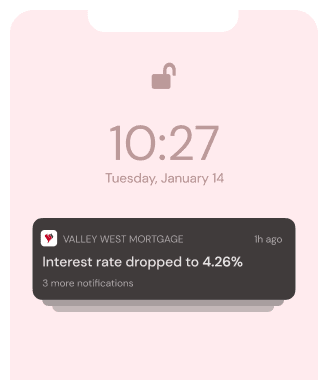The Analytics on Appraisals
The Analytics on Appraisals
What is an Appraisal?
An appraisal is a document provided by an appraiser (the person who conducts the appraisal report) that provides a professional estimate of the value of your home.
Appraisals are conducted by a third-party appraiser who is completely objective in their process. Appraisers do not work in favor of the lender nor the borrower. They simply conduct the appraisal and produce their findings.
Appraisals are most often conducted two ways. The first way an appraiser can conduct an appraisal is by noting comparables. Comparables, or comps for short, are properties within the neighborhood of the home you’re buying that are similar to yours. The appraiser will use the values of the similar properties nearby to determine the value of your home. The second way is by estimating how much it would cost to replace your home should it burn down or be otherwise destroyed. The appraisal will compile all of the findings of the appraiser including:
- Comparisons with homes near the subject property
- Notes about the real estate market in the area as a whole, including the ages of the homes and the average selling prices of the homes nearby
- Notes about the appearance of the inside, outside, and surrounding area of your home
- Notes about any visibly unfavorable characteristics about the home like cracked concrete or damaged windows
- Pictures of everything that adds value to the home including, bedrooms, appliances, and fixtures
Why Lenders Need Appraisals
Lenders do not want to dish out more than the actual market value of the subject property. An appraiser’s goal is to determine that value. With this figure, the lender knows how much the property will sell for if you default on your loan. They also know how much they can lend to you without taking a loss if you default.
For example: If the subject property is appraised at $150,000 – that’s how much it will sell for on the open market. If your lender gives you a loan of $175,000 and you default on your loan, they now have to try to sell the home at a higher amount than what its appraised for, which can be difficult. If they end up selling the home for the actual market value, they’ve just lost $25,000. It is for this reason that lenders usually give a loan amount that is at or under the appraised value.
Why Borrower’s Need Appraisals
Appraisals are usually buyer paid and can be paid for at closing or during the application process. If you’ve signed a contract to buy a new home for $200,000 and the appraisal comes back valuing the home at $150,000, you should negotiate with your lender to lower the loan amount because you’re paying more for the home than it’s actually worth.
Overall, appraisals are a measure of protection. They ensure that neither party is lending or spending too much during the purchase process of a home.
When doing your research, always be sure to cite great sources! Check out the sources for this article below!
http://www.bankrate.com/finance/real-estate/why-does-the-house-need-an-appraisal.aspx
https://www.thebalance.com/mortgage-101-series-understanding-the-appraisal-process-2395231
https://www.thebalance.com/facts-about-residential-real-estate-appraisals-1797691
https://www.thebalance.com/appraisal-process-when-buying-a-home-2395235
WHITNEY RUSH, VALLEY WEST MORTGAGE


